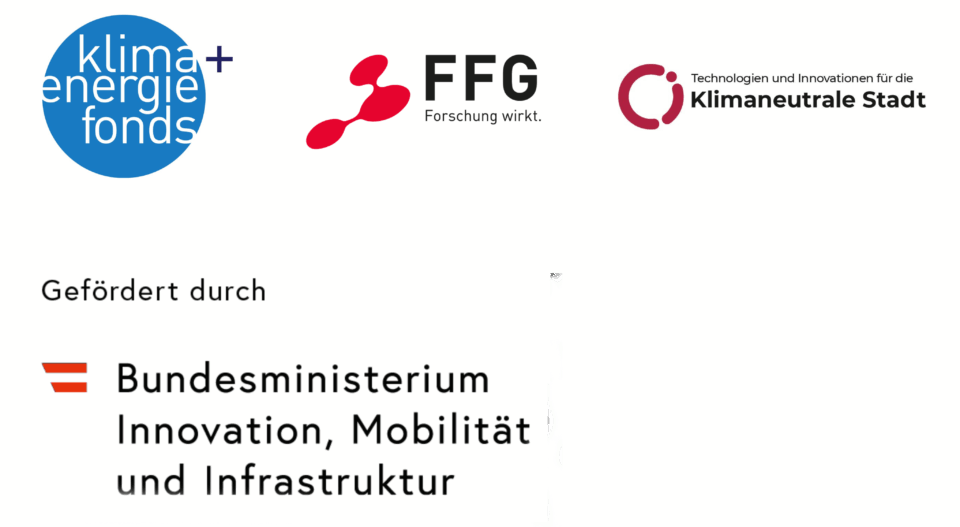BIOCHARm
Potenzialanalyse des Einsatzes von Pflanzenkohle im Bauwesen als Beitrag zur Erreichung der Klimaneutralität

Der Rohstoff Holz wird in der Steiermark bereits weitgehend im Sinne der Kaskadennutzung eingesetzt – von der stofflichen Nutzung bis hin zur energetischen Verwertung. Durch eine technologische Weiterentwicklung kann nun ein zusätzlicher Beitrag zur Kreislaufwirtschaft geleistet werden: Aus Reststoffen entsteht neben der thermischen Nutzung auch ein neuer verwertbarer Rohstoff – Biokohle.
Biokohle eröffnet Anwendungsmöglichkeiten in Bereichen, in denen nachwachsende Rohstoffe (NAWAROs) an funktionale oder bautechnische Grenzen stoßen. Während NAWAROs im Bauwesen bereits in vielen Bereichen erfolgreich eingesetzt werden, eignen sie sich nur eingeschränkt für Konstruktionen, die dauerhaft mit Feuchtigkeit oder Boden in Kontakt stehen. Biokohle ist hingegen beständig gegenüber biogenem Abbau. Dadurch ergeben sich Potenziale für den Einsatz in erdberührten Bauteilen, in der Drainagetechnik sowie im Lehmbau. Ihre Nutzung kann somit zur Langlebigkeit von Bauteilen beitragen und die Materialpalette im Bereich des nachhaltigen Bauens sinnvoll erweitern.
Unter der Leitung der TU Graz ist der Holzcluster Steiermark Teil eines interdisziplinären Teams aus Forschungseinrichtungen, Anlagenherstellern und Anwendern, welches sich mit der Entwicklung und Anwendung biokohlebasierter Baustoffe befasst. Die Zusammenarbeit ermöglicht eine praxisnahe Entwicklung und Erprobung neuer Anwendungen im Bereich biobasierter Baustoffe.
| Zeitraum | 2025 – 2028 |
|---|
| Projektstart | 01.03.2025 |
|---|
| Projektende | 29.02.2028 |
|---|
| Projektlaufzeit | 36 Monate |
|---|
Potenzialanalyse des Einsatzes von Pflanzenkohle im Bauwesen als Beitrag zur Erreichung der Klimaneutralität:
- Potenziale und Grenzen des Einsatzes von Pflanzenkohle im Bausektor untersuchen
- Neue Erkenntnisse über die Verfügbarkeit von biogenen Roh- und Reststoffen gewinnen (biogene Stoffströme)
- Analyse der Stoffströme unterschiedlicher biogener Materialien und Feststellung der Eignung pyrolysierter Pflanzenkohlen für den Einsatz in Baustoffen
- Neue Erkenntnisse aus der Analyse von Pflanzenkohlen für die Materialentwicklung gewinnen
- Erkenntnisse zur Ökobilanzierung und damit Empfehlungen für zukünftige Entscheidungen zur Erreichung eines klimaneutralen Gebäudebestandes
- Untersuchung der rechtlichen Rahmenbedingungen und möglicher normativer Lücken für den Einsatz von Pflanzenkohlen im Bausektor
Biochar: New inventions enable the affordable and effective storage of CO2 in many goods.
Sie sehen gerade einen Platzhalterinhalt von YouTube. Um auf den eigentlichen Inhalt zuzugreifen, klicken Sie auf die Schaltfläche unten. Bitte beachten Sie, dass dabei Daten an Drittanbieter weitergegeben werden.
Mehr Informationen
News
Laufende Projekte
Sie müssen den Inhalt von reCAPTCHA laden, um das Formular abzuschicken. Bitte beachten Sie, dass dabei Daten mit Drittanbietern ausgetauscht werden.
Mehr InformationenSie sehen gerade einen Platzhalterinhalt von Turnstile. Um auf den eigentlichen Inhalt zuzugreifen, klicken Sie auf die Schaltfläche unten. Bitte beachten Sie, dass dabei Daten an Drittanbieter weitergegeben werden.
Mehr InformationenSie sehen gerade einen Platzhalterinhalt von Facebook. Um auf den eigentlichen Inhalt zuzugreifen, klicken Sie auf die Schaltfläche unten. Bitte beachten Sie, dass dabei Daten an Drittanbieter weitergegeben werden.
Mehr InformationenSie sehen gerade einen Platzhalterinhalt von Instagram. Um auf den eigentlichen Inhalt zuzugreifen, klicken Sie auf die Schaltfläche unten. Bitte beachten Sie, dass dabei Daten an Drittanbieter weitergegeben werden.
Mehr InformationenSie sehen gerade einen Platzhalterinhalt von X. Um auf den eigentlichen Inhalt zuzugreifen, klicken Sie auf die Schaltfläche unten. Bitte beachten Sie, dass dabei Daten an Drittanbieter weitergegeben werden.
Mehr Informationen




